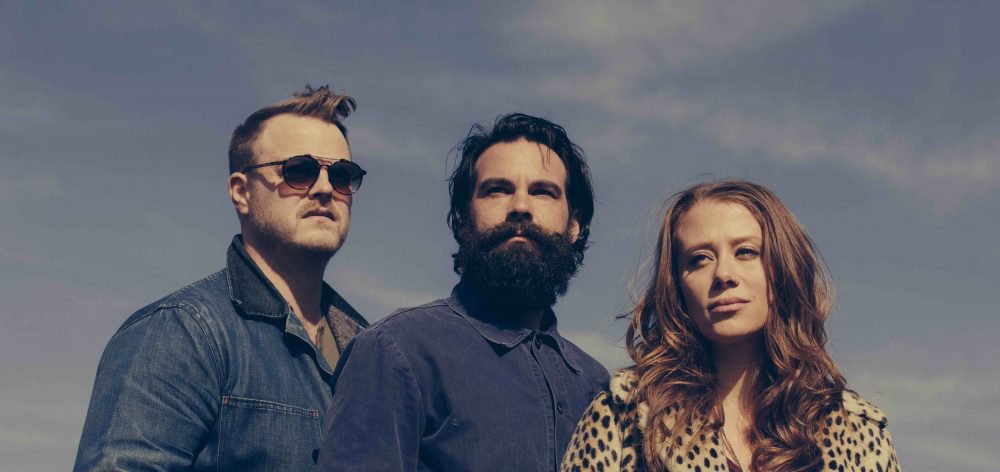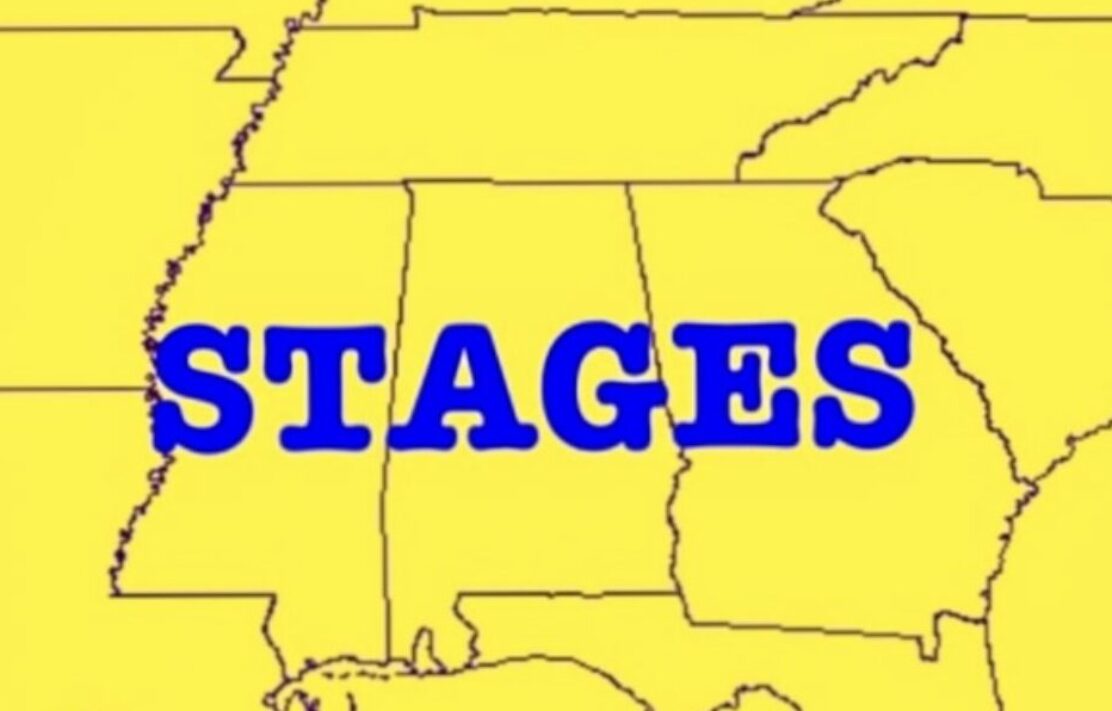By Blake Ells

Zach Williams moved to Brooklyn from Acworth, Georgia in 2005 after he graduated from college. His wife was involved in a tragic horse riding accident, and doctors diagnosed her paraplegic. She was under the care of a team at the Shepherd Center in Atlanta when his friends optimistically suggested to him, “If Stacy ever gets better, let’s move to New York City together.”
She did, and they did.
During her recovery, Williams coped with his emotions in journal entries and at the encouragement of those friends, he eventually learned to play guitar and set those entries to music. He was 24, and at that point, he’d never written or performed any music. That’s where Zach’s career began. He’d been in a band with guitarist Brian Elmquist in Nashville and he invited his friend’s sister, Kanene Donehey Pipkin, to join on mandolin and bass. In 2011, The Lone Bellow began.
He recently talked about his move to Nashville, working with Dave Cobb on the band’s newest record, Walk Into A Storm, and the art of writing songs free from tragedy.
Birmingham Stages: When did Americana become a coast-to-coast thing and not just a Southern thing?
Zach Williams: I moved to Nashville last year—I was in Brooklyn for ten years—and I have four kids and touring…I had to be away from home so much in Brooklyn that I moved to Nashville because it’s a lot easier to tour from. I can be home more with my family. I’ve met Margo Price and Robert Ellis and a couple of the Phosphorescent guys, but mostly from Margo Price I’m learning that there was kind of an Americana movement going on in Nashville at the same time that we were doing our thing in Brooklyn. I think that was 2012 or 2013.
We started touring in 2013. We played 16 shows at South by Southwest and then hit the road, which is when we had to call our bosses and be like, “Uh…we’re not coming back.”
Birmingham Stages: What was the day job that you quit?
ZW: I had a myriad of jobs in Brooklyn—I worked in a basement of a jean company organizing the jean stock. Brian worked at a diner called Dizzy’s Diner. Kanene worked at a place called The Pharmacy that’s like an ice cream/soda parlor. We just did whatever we could to try to make ends meet while we were figuring it out. We made our first record in 2011 and we sat on it for two years. We released it in 2013.
There were a couple of years even after The Lone Bellow had performed that we were just trying to figure out what role it was going to have in our lives. We dreamt of being able to tour. We also kind of managed our expectations very closely.
Birmingham Stages: Did the move to Nashville make things easier?
ZW: It did. We had that super tight-knit crew in Brooklyn, which was really hard to leave behind, but my kids aren’t going to be living in my house—18 years will fly by—and I want to be there as much as I can. I’m home drastically more.
Birmingham Stages: How did you connect with Dave Cobb and how do you think you fit alongside the other artists that he’s worked with?
ZW: We had Anderson East come out and open for us, and we were trying to figure out who our next producer was going to be. We had made our second record with Aaron Dessner from The National, which was so, so fun; just getting to know that whole crew of people—Justin Vernon, all of The National guys…that whole scene was really fun.
But I knew that we were moving to Nashville and I had always heard stories from my grandfather about RCA Studios, so when I found out that Cobb was taking over the studio, I was like, “What?!”
While Anderson was making his second record, I went over there and sang on a song with him. It was a cover [Williams sings a few bars of “Sorry You’re Sick” by Ted Hawkins]. After we got done singing, I hung out with Cobb for a few minutes. I really dug his energy. We decided to work together and make a record and it was wonderful.
There’s a lot of stuff that went down—just some life stuff with the band that made things pretty difficult at times—but at the end, I think that it actually helped the music and helped the record. It was a really cool experience.
Birmingham Stages: What song do you most wish that you had written that was written by someone else?
ZW: “Lean on Me” – Bill Withers.
Birmingham Stages: What song are you most proud of that you did write?
ZW: On this last record, I wrote a song that’s to all of my kids, but it says my oldest daughter’s name in it. It’s called “May You Be Well.” I wrote it in a hotel bathroom. I missed my family. I really like singing that one. We’re two weeks into the tour and with all that’s going on, it’s been pretty cool watching the whole room sing “May You Be Well” together.
Birmingham Stages: It’s awesome that you say that because I was going to specifically ask you about that song and who’s Loretta. I guess that’s your daughter?
ZW: Yeah, that’s my oldest.
Birmingham Stages: It seems like things are going well for you now—especially considering all that you and your wife and have dealt with. Is it more difficult to write when things are going well?
ZW: There’s actually a song on this record about that called “Between the Lines.” In 2009, I was playing shows in New York and making a record and I went and met with this fancy label guy that I won’t name in a big hoity-toity office on the top floor of some building in downtown Manhattan. And he was like, “Hey man, I like your record, but I don’t want to have to wait for the next tragedy to happen for you to write more songs that are worth listening to.”
And I was like, “Screw you, man.” It really sucked. And that’s always been in the back of my mind. I’ve been talking to some fellow musicians about it; I’ve talked to Mike Taylor about it from Hiss Golden Messenger and Jim James (from My Morning Jacket). Especially Jim—Jim had some really solid advice. “We can’t need to search out regret and pain and tragedy just to create.”
So there’s this chorus on the song I wrote that says, “You don’t need to hurt to make something you love to tell you what you’re worth. And you don’t need regret to guide you through the night. You and I were made to stand up straight and read between the lines.”
Some stuff happened where one of our band members had to go to rehab and we had to cancel our recording session at RCA. Cobb was really gracious; we ended up doing the record in seven days instead. It’s an anthem to myself and to anybody else that’s trying to create something out of nothing. We don’t have to go through terrible tragedy to make something that we love.
Birmingham Stages: This is probably my favorite record that you guys have done. It’s great to hear that it was written from that perspective; congrats to you guys for that.
ZW: Thanks, man. Jason Isbell—from a distance—has been very encouraging to me. He’s done some interviews where he has talked about this as well. And Jim.
[Isbell’s] worked with Cobb, and when I called Cobb and told him the situation about rehab, Cobb was like, “Man, Jason came in a day or two after he was out. I know about this.” And I was like, “Cool.”
So I’ve only met Jason a couple of times; we opened for him a couple of times. But I’ve definitely been living vicariously through his story from a distance, and it definitely made its way into this record.
The Lone Bellow presented by Birmingham Mountain Radio comes to Iron City on Sunday, November 5. Doors open at 7 p.m. and the show begins at 8 p.m. The Wild Reeds open. Tickets are $22.50 and can be purchased at www.ironcitybham.com.
